
APHR Calls on the Philippines to halt reclamation and prioritize people’s lives, human rights, and safety, Southeast Asian MPs say
October 27, 2024
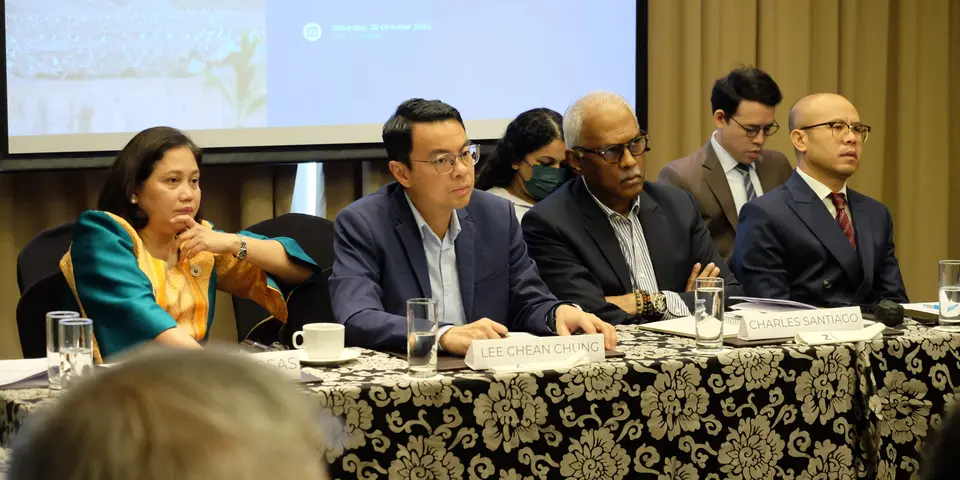
Manila, 27 October 2024 – The ASEAN Parliamentarians for Human Rights (APHR) held an international parliamentary inquiry (IPI) to examine the environmental consequences of various industries in Southeast Asia, particularly focusing on coastal and marine resources in the Philippines and how these projects directly impact the fundamental rights of citizens in at-risk communities.
“In the wake of severe tropical storm Kristine, we should look at the climate crisis beyond flood control and relief operations because quarrying, mining, deforestation, reclamation and other extractive industries sponsored by big corporations are putting Filipino people’s lives at grave risk,” says APHR Board Member and member of the Philippines House of Representatives Arlene D. Brosas. “We call on the Philippine government and other stakeholders to be accountable in ensuring the human rights and safety of the Filipino people,” Brosas adds.
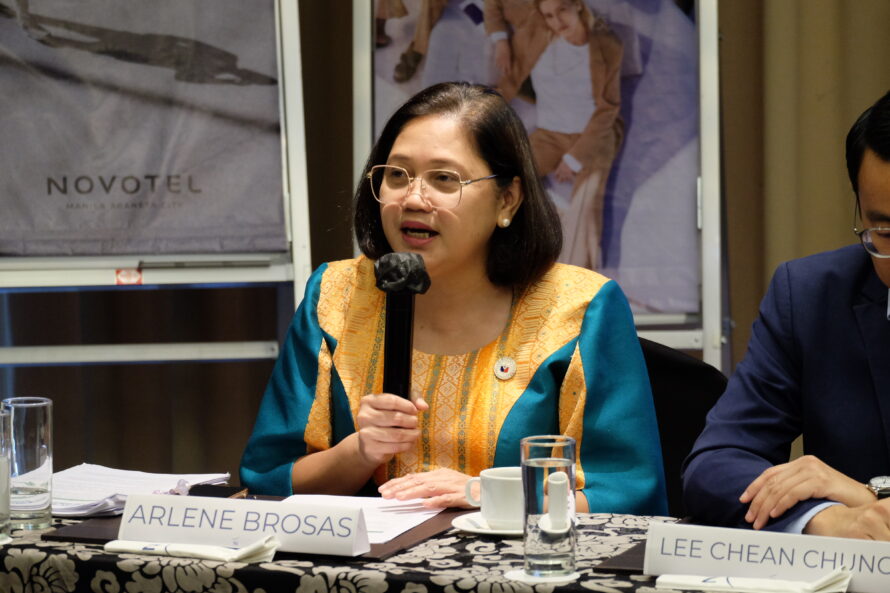
Arlene D. Brosas, APHR Board Member and the Philippines MP, speaking at the APHR International Parliamentary Inquiry in Manila, the Philippines, 26 October 2024. ©APHR2024
To learn more about the community’s lived experiences and concerns with reclamation activities, this inquiry hopes to uncover data that will provide the human rights lens and inform the development of policy recommendations to improve collaboration among key ministries, policymakers and local communities.
The hearing was attended by members of APHR’s IPI Committee – Arlene D. Brosas; former Malaysian member of parliament Charles Santiago; Thai member of parliament Nitipon Piwmow; and Malaysian member of parliament Lee Chean Chung – as well as representatives from civil society organizations like Pamalakaya (National Federation of Small Fisherfolk Organization in the Philippines, Oceana, Kalikasan People’s Network for the Environment, AGHAM – Advocates of Science and Technology for the People, Philippine Movement for Climate Justice (PMCJ) and Manila Observatory among others. Members of government ministries were also present, Commission on Human Rights (CHR) and the Environmental Management Bureau (EMB).
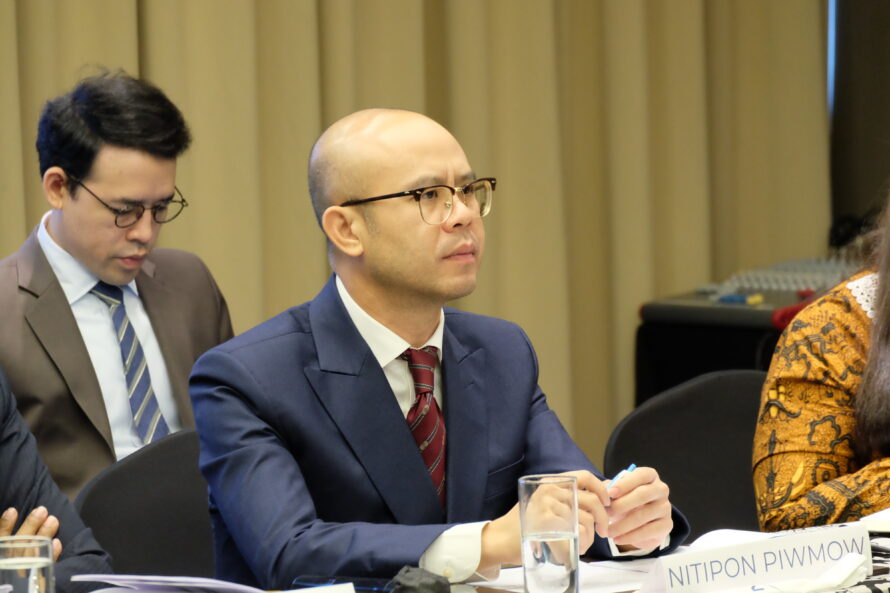
Nitipon Piwmow, APHR Member and Thai MP, during the APHR International Parliamentary Inquiry in Manila, the Philippines, 26 October 2024. ©APHR2024
There are 187 reclamation projects in the Philippines according to the Philippine Reclamation Authority data, and the hearing focused on their impact on marine and coastal resources, as well as its consequences on the livelihood and the civil and political rights of affected communities and environmental defenders.
“It is clear that land reclamation has negatively impacted the supply of mussels, oysters, mackerel, squid, and other fish species in the Manila Bay area. We have to hold stakeholders and the government responsible,” said Nitipon Piwmow.
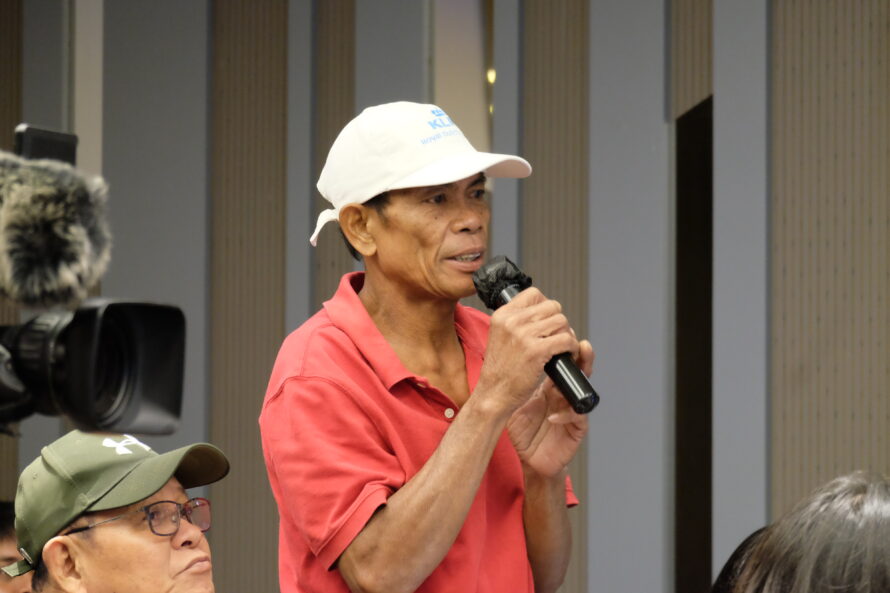
Bong Binosa, fisherfolk from a coastal community in Bacoor, attending the APHR International Parliamentary Inquiry in Manila, 26 October 2024. ©APHR2024
Bong Binosa fisherfolk from a coastal community in Bacoor, Cavite shared their story, “life in our community used to be really good. Abundant fish catch and peaceful environment. Now, with these reclamation projects, fish supply at the market is seasonal.” Cavite is the biggest supplier of mussels, oysters and other shellfish in Metro Manila and the whole of Luzon, “but at the moment, supply is alarmingly low due to the impacts of reclamation on marine resources.” Binosa adds.
“It has been evident as well during this inquiry that these reclamation projects pose a challenge to the fundamental rights of Filipinos. We heard stories of violent forms of evictions, red-tagging of environmental defenders, and dire impacts on the livelihood of fisherfolk and other coastal sectors. Parliamentarians, governments, and other key stakeholders must go the extra mile to mitigate not only environmental degradation but address these related human rights issues,” added Lee Chean Chung.
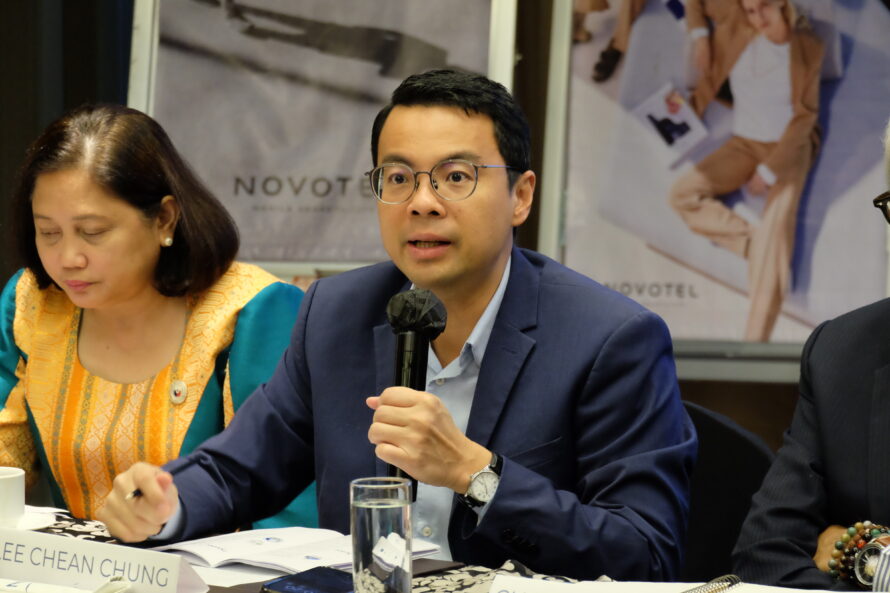
Lee Chean Chung, APHR Member and Malaysian MP, speaking at the APHR International Parliamentary Inquiry on reclamation projects and its impact on the environment in Manila, the Philippines, 26 October 2024. ©APHR2024
“These reclamation operations all ended in tragedy. There is no success story. The government hand-in-hand with big corporations weaponizes the law to vilify and tag as enemies-of-the-state those that resist these development projects,” shares Jonila Castro from the Kalikasan People’s Network for the Environment. “These projects are implemented at the cost of the livelihood and security of ordinary Filipinos,” Castro further expressed.
The hearing is the second in a series that will be conducted in one other country in Southeast Asia, Thailand. The IPI’s focus is on industries related to large-scale deforestation, degradation and depletion of coastal and marine resources, and pollution of natural water resources.
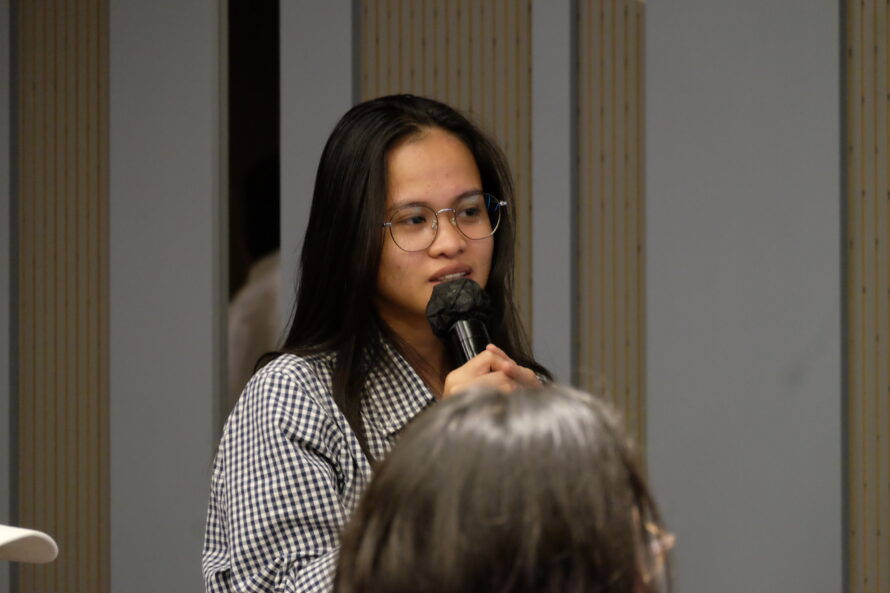
Jonila Castro, from the Kalikasan People’s Network for the Environment, attending the APHR International Parliamentary Inquiry in Manila, the Philippines, 26 October 2024. ©APHR2024
A final report outlining the panel’s primary recommendations for ASEAN, governments, parliaments, the private sector, civil society, and other stakeholders will be made public after the data gathered at the IPI has been verified. The IPI seeks to better comprehend the situation and encourage a collaborative approach in the hope that lawmakers throughout the region can establish better policies.
“At the heart of any development for a better society must be the health, security and wellbeing of the people. As a region, we must work together to strike a balance between environmental protection and embracing the future anchored on every citizens’ human rights,” said Charles Santiago.
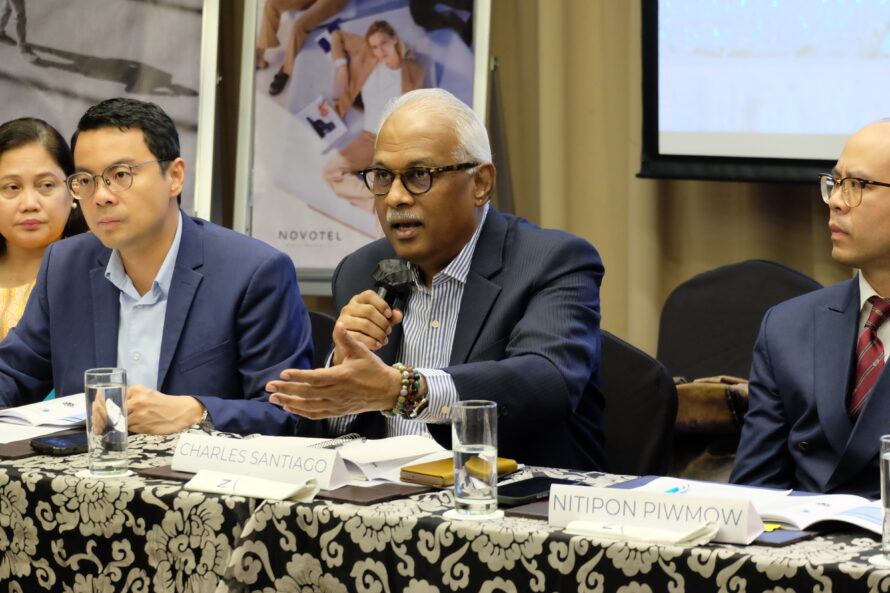
Charles Santiago (center), APHR Co-Chairperson and former Malaysian MP, during APHR International Parliamentary Inquiry in Manila, the Philippines, 26 October 2024. ©APHR2024
ASEAN Parliamentarians for Human Rights (APHR) was founded in June 2013 with the objective of promoting democracy and human rights across Southeast Asia. Our founding members include many of the region's most progressive Members of Parliament (MPs), with a proven track record of human rights advocacy work.